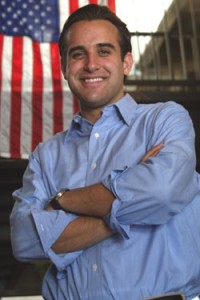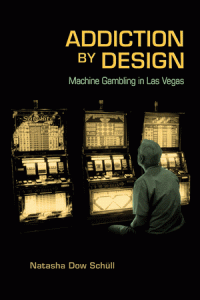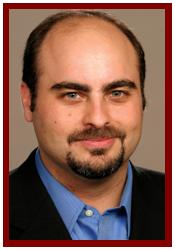By RP Nation, on Tue Jan 31, 2012 at 8:30 AM ET Yesterday, The Recovering Politician featured a lively debate among the contributing RPs on the subject of whether states should expand gambling for the additional tax revenues they present during these difficult times.
To read the first piece that started it, check out The RP’s “The Moral Case for Gaming”
To review all of the arguments and counter-arguments, pro, con and sideways, from yesterday’s RPs Debate, click here.
Our readers sent in some very thoughtful and interesting comments. We excerpt a few below:
I understand the need for gambling in Kentucky. I have no moral arguments against gambling. My discussion is more the benefits of the individual vs. the benefits of society. First a disclaimer – I’m very liberal. Statistically speaking, it is no surprise to the educated that gambling favors the “house”. The odds are any one person will probably lose more money than they gain from a wager.
According to a national survey, blacks and Hispanics are more likely to be “pathological” gamblers. Impulsivity also was greater among youth of lower socio-economic status . Gambling can also find risk populations with older adults. The bottom line, to me, is does the benefit of society outweigh the benefit (or lack thereof) for the individual. W.C. Fields said there’s a sucker born every minute. And Kentucky would depend on these “suckers” to help fund our state. Yes, we have our signs that urge citizens to drink responsibly, gamble responsibly, etc. But I can’t help but feel Kentucky would be enabling a negative behavior for those least able to afford it.
I understand other states have gambling, and Kentucky is losing $$ to those states. What percentage of Kentucky citizens are flocking to tangential states, and what percentage do we anticipate gambling would increase in Kentucky with in-state casinos? We need to be creative to generate income for our state. And I know in-state gambling is one of those creative ideas. I just believe it is an idea the ultimately will generate as many problems as it attempts to solve.
Read the rest of…
The RP Nation Weighs in on the Gambling Debate
By Jonathan Miller, on Mon Jan 30, 2012 at 5:00 PM ET The RP: Closing Argument
[The RP’s Provocation, Artur Davis’s Rebuttal #1; Ron Granieri’s Rebuttal #2; Natasha Dow Schüll’s Analysis; Spectrum Gaming Group’s Analysis; Jason Grill’s Rebuttal #3; The RP’s First Defense; Jason Grill’s First Response; Artur Davis’ First Response; David Host’s Rebuttal #4]
I’m going to resist the urge to rebut David Host’s full-throated defense of trickle-down economics — we will leave that for another day.
I’ll close instead on a harmonizing note. Too often the two sides of the gambling debate are boiled down to self-righteous moralists versus selfish libertarians. (Indeed, more often the media focuses on the politics rather than the underlying policy debate.) In fact, whether we are discussing casinos, sports betting, or even a state lottery, there are valuable and valued moral arguments on each side of the issue.
Read the rest of…
The RPs Debate Gambling: The RP’s Closing Argument
By RP Nation, on Mon Jan 30, 2012 at 4:00 PM ET David Host: Rebuttal #4
[The RP’s Provocation, Artur Davis’s Rebuttal #1; Ron Granieri’s Rebuttal #2; Natasha Dow Schüll’s Analysis; Spectrum Gaming Group’s Analysis; Jason Grill’s Rebuttal #3; The RP’s First Defense; Jason Grill’s First Response; Artur Davis’ First Response]
Given that Kentucky’s self-image is significantly rooted in an industry built upon parimutuel betting, opposing legalized gambling on moral grounds alone seems to require some degree of cognitive dissonance. Moreover, the Kentucky Lottery is now more than two decades old – meaning that the camel (horse?) poked its nose under the tent some time ago.
Nevertheless, I do sympathize with those who wish to draw some practical line; who sense something amiss when state governments rush to endorse an industry which destroys lives. Perhaps a reasonable case exists for allowing thoroughbred tracks to expand into slots and other gaming at existing locations; such a measure is a far cry from actively promoting the expansion of gaming as a remedy for budget shortfalls.
Certainly, expanded gaming offers an appealing short-term means for shoring up cash-strapped government budgets; perhaps a necessary evil in service of the long-term public good. Yet, the risk in embracing gambling as an interim solution remains its potential to become a permanent substitute for fundamental reform.
By Artur Davis, on Mon Jan 30, 2012 at 3:00 PM ET 
Artur Davis‘ First Reponse
[The RP’s Provocation, Artur Davis’s Rebuttal #1; Ron Granieri’s Rebuttal #2; Natasha Dow Schüll’s Analysis; Spectrum Gaming Group’s Analysis; Jason Grill’s Rebuttal #3; The RP’s First Defense; Jason Grill’s First Response]
I would add just a little to Jonathan’s arguments against sports gambling, which I think are entirely correct. The NCAA struggles to police the rules that exist today; it is a notoriously weak investigator without subpoena power, and I cant’t imagine the strains it would face if policing the ties between amateurs and more powerful, more nationalized gambling interests were part of it’s charter.
It’s worth examining the question of why the current regime of legalized sports betting in a few jurisdictions doesn’t pose the same risks. In fairness to Jason Grill’s case, there are enormous sums of gambling money at work today, and it’s been over 25 years since there was a bona-fide betting scandal in college sports. The true answer is that we don’t know what changing the scale of sports betting would do to incentivize corruption; in my mind, however, that’s a strike in it’s own right. If we guess wrong, the likelihood is an irreparable stain on amateur athletics. It’s also likely that, as I have argued in the context of legalizing marijuana, criminals are far more likely to bend their business model to profit from looser regulations, than they are to forfeit a lucrative market altogether.
Read the rest of…
The RPs Debate Gambling: Artur Davis Responds
By Jason Grill, on Mon Jan 30, 2012 at 2:00 PM ET  Jason Grill‘s First Response Jason Grill‘s First Response
[The RP’s Provocation, Artur Davis’s Rebuttal #1; Ron Granieri’s Rebuttal #2; Natasha Dow Schüll’s Analysis; Spectrum Gaming Group’s Analysis; Jason Grill’s Rebuttal #3; The RP’s First Defense]
Sports gambling & betting is widespread and common place in our country and it’s being done illegally every minute.
It’s immoral not to legalize it and give states the option to reap the economic benefits of it for all of its citizens and visitors.
On Jonathan’s college argument:
The FBI estimates that more than $2.5 billion is illegally wagered annually on the NCAA basketball tournament each year. However, Nevada sportsbook operators estimate close to $90 million or less than 4 percent of illegal betting on March Madness is wagered legally on the tournament in their state.
Read the rest of…
The RPs Debate Gambling: Jason Grill Responds
By Jonathan Miller, on Mon Jan 30, 2012 at 1:00 PM ET The RP‘s First Defense
[The RP’s Provocation, Artur Davis’s Rebuttal #1; Ron Granieri’s Rebuttal #2; Natasha Dow Schüll’s Analysis; Spectrum Gaming Group’s Analysis; Jason Grill’s Rebuttal #3]
I guess it’s fitting that the guy who opened up this can of worms will be the first to try to shut it a bit.
I’m agnostic about Jason’s idea when it is applied to professional sports. I think players are paid too much these days for the threat of Black Sox-era thrown ballgames return. Pete Rose’s stupidity is the modern exception; when most professional players cheat today, it is in reference to the substances they ingest or inject, not the influence of gamblers and loan sharks.
My problem with Jason’s argument is how it applies to college athletics. I’ve written at this site — and more recently both Taylor Branch and Joe Nocera have written brilliant searing, substantive essays — about corruption in college sports, particularly of the extraordinary unfairness towards the unpaid athletes who are earning universities and their coaches millions of dollars.
Read the rest of…
The RPs Debate Gambling: The RP Defends
By Jason Grill, on Mon Jan 30, 2012 at 11:30 AM ET  Jason Grill: Rebuttal #3 Jason Grill: Rebuttal #3
[The RP’s Provocation, Artur Davis’s Rebuttal #1; Ron Granieri’s Rebuttal #2; Natasha Dow Schüll’s Analysis; Spectrum Gaming Group’s Analysis]
Lets change the direction of this debate a little bit.
It’s all about sports gambling ladies and gentlemen.
As a member of the Missouri House of Representatives, I sponsored a resolution calling on Congress to repeal the Federal Professional And Amateur Sports Promotion Act of 1992 (PASPA). The 1992 law prohibited all but four states from offering sports gambling. The four states exempted from this act were Delaware, Montana, Nevada, and Oregon.
Missouri currently allows twelve gambling casinos in the State. They should have the option to put a sportsbook in each one of them. The federal law is outdated and is truly discriminatory towards 46 other states. These states should have the option to share in the major economic and revenue benefits that sports betting can provide.
Guess what…The Super Bowl is this week. Lets take a look at a few stats…
Read the rest of…
The RPs Debate Gambling: Jason Grill Rebuts
By RP Staff, on Mon Jan 30, 2012 at 10:30 AM ET Spectrum Gaming Group’s Market Analysis
[The RP’s Provocation, Artur Davis’s Rebuttal #1; Ron Granieri’s Rebuttal #2; Natasha Dow Schüll’s Analysis]
The RP referred in his Provocation to a recent market analysis sponsored by the Kentucky Chamber of Commerce, a pro-gaming organization. Below is an excerpt from the report, as well as a link to its Executive Summary:
Based upon our assumed parameters, we developed a detailed market analysis and casino project assumptions that were based on site visits, the competitive landscape, owner interviews and our experience. Spectrum concludes that the eight Kentucky casinos as described in this report would produce the following statewide outcomes (first-year numbers are assumed to be for 2015):
• First-year full-time equivalent direct jobs of as many as 10,953, with a payroll of $289.3 million.
• First-year statewide total direct, indirect and induced jobs of 20,471 (non-farm, but inclusive of equine). This excludes any government jobs that might be created.
• The eight prospective casinos would generate first-year gross state product of $1.737 billion and first-year total personal income of $1.009 billion.
• The 30-month construction period would create 4,297 full-time-equivalent construction jobs with a total payroll of $338 million.
• First-year gross gaming revenue of $1.14 billion. • First-year gaming tax of $464.7 million, and total state tax receipts from all sources of
$541.3 million, including funds dedicated to horse-racing industry programs. • One-time license fees of $266 million. • First-year funds for horse-industry programs of $164.6 million:
o $152.5 million for thoroughbred and standardbred purses o $10.5 million for the Equine Breed Authority o $1.6 million for Quarter Horse Purse Program
• Funds dedicated to the racing industry would generate an average of 2,861 additional jobs in the equine sector each year over the first three years of casino operations, with an estimated 1,500 jobs created in the first year.
Click here to read the full Executive Summary of the report.
By RP Nation, on Mon Jan 30, 2012 at 10:00 AM ET Natasha Dow Schüll: Analysis
[The RP’s Provocation, Artur Davis’s Rebuttal #1; Ron Granieri’s Rebuttal #2]
A RP Nation reader who opposes expanded gaming recommended the pioneering work of MIT Professor Natasha Schüll. An op-ed of Schüll’s from The Washington Post — written at the time that Maryland was considered expanded gaming — is excerpted below, and a link to her new book, Addiction by Design, is provided as well:
All forms of gambling are not created equal. Marylanders should take this into account when deciding how to vote in November’s referendum on slots.
My research as a social anthropologist has been focused on a dramatic turn that has taken place in recent decades from social forms of gambling played at tables to asocial forms played alone at video terminals. If voters endorse the proposal to alter Maryland’s constitution to allow slot machines at racetracks, residents will be exposed to devices that have been carefully designed to make them lose as much as possible.
It’s important for voters to understand how these machines work. Every feature of a slot machine — its mathematical structure, visual graphics, sound dynamics, seating and screen ergonomics — is calibrated to increase a gambler’s “time on device” and to encourage “play to extinction,” which is industry jargon for playing until all your money is gone. The machines have evolved from handles and reels to buttons and screens, from coins to credit cards, from a few games a minute to hundreds. Inside, complicated algorithms perform a high-tech version of “loading the dice” — deceptions no self-respecting casino would ever allow in table gambling. The machines are designed to exploit aspects of human psychology, and they do it well. In the eyes of the gaming industry, this may look like success, but it comes at great expense for gamblers.
Click here to read Schüll’s entire Washington Post op-ed.
 Click here to pre-order Schüll's forthcoming book, Addiction by Design
By Ronald J. Granieri, on Mon Jan 30, 2012 at 9:30 AM ET  Ron Grainieri: Rebuttal #2 Ron Grainieri: Rebuttal #2
[The RP’s Provocation, Artur Davis’s Rebuttal #1]
Artur raises a crucial point, whether the money raised from gambling will really make that much of a difference, that I think deserves close attention.
As the proud product of parochial schools whose existence depended upon Bingo, I am well beyond worrying about the moral implications of using proceeds from vice to pursue virtuous ends. Considering how governments at various levels already derive revenue from other vices, such as tobacco and alcohol, as well as already existing lotteries, I view the moral debate on legalized and regulated gambling as forced and ultimately irrelevant. It is far too late for the brothel denizen known as the treasury to wish to regain its virginity.
I will say that I do not like the fact that the gambling industry has succeeded in re-christening (re-luciferizing?) itself as the “gaming” industry, which I consider a classic example of transparent mendacious marketing. It is supposed to make the activity appear somehow wholesome and entertaining, and to encourage us to avoid thinking about the whole, “most of the people who play lose their money” angle. Spare me. People play games like Missile Command (the greatest video game in the history of entertainment) for the fun of the game, and are happy to know that every quarter so spent is lost forever. Slot machines only exist because people are gambling on the hope of winning more money. To pretend otherwise is an insult to the intelligence of anything with a pulse.
|
The Recovering Politician Bookstore
|












